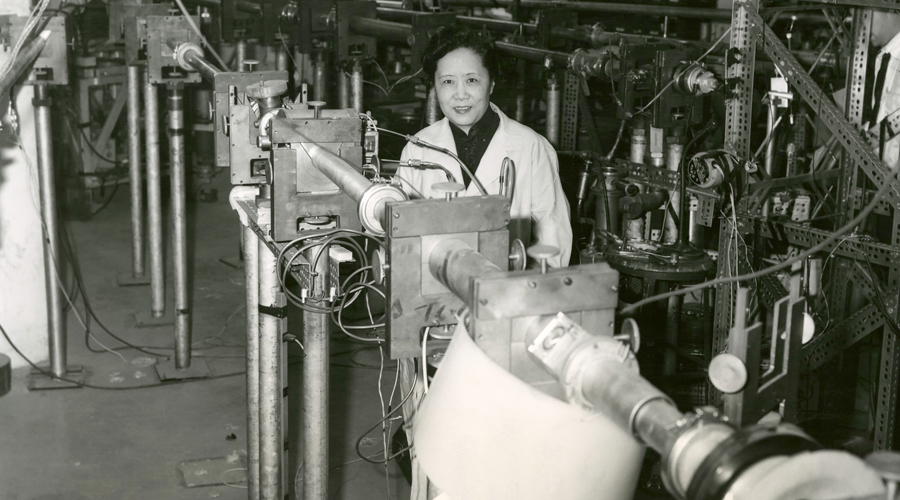To help mark the Postal Service’s recent release of the Chien-Shiung Wu stamp, here are six facts about the pioneering scientist:
1. She was an early bloomer. Wu was born in 1912 in a village outside Shanghai. She attended a school run by her parents, who were enthusiastic supporters of education for girls, which was unusual for the time. This is when her fascination with math and science took root.
2. Wu attained star status in the United States. She moved to the United States in 1936 and earned her doctorate in nuclear physics in 1940 from the University of California, Berkeley. During her time there, she worked alongside other pioneering nuclear scientists and became well known on campus and in the physics community at large. Wu’s adviser was Nobel laureate Ernest Lawrence, who later was involved in the Manhattan Project, the research venture that developed the atomic bomb, which brought an end to World War II.
3. She was a key member of the Manhattan Project. In 1944, Wu accepted a position in the Division of War Research at Columbia University, where she worked on uranium enrichment and radiation detectors for the Manhattan Project. Conducting highly classified research, Wu made invaluable contributions to the experimental process of splitting and harnessing the power of the uranium atom.
4. Wu made other significant contributions, too. After World War II, Wu stayed on at Columbia as a research professor, where she created a more precise spectrometer to finally explain beta decay, a problem that had plagued physicists in the United States and across Europe for decades. In the 1950s, Wu helped develop a theory that disproved the foundational principle of conservation of parity — a finding that overturned a decades-old, intrinsic element of quantum mechanics and earned the project’s lead physicists the Nobel Prize in physics.
5. She was a woman of firsts. Among Wu’s accomplishments: She was the first recipient of the Wolf Prize in Physics, the first female president of the American Physical Society and the first female tenured physics professor at Princeton and Columbia universities.
6. Wu was a principled fighter, too. She was appalled by the sexism in American science — she did not find it to be the case in China — and was an advocate for women in the field. In retirement, she dedicated herself to getting girls involved in the science, technology, engineering and math disciplines. “I wonder whether the tiny atoms and nuclei, or the mathematical symbols, or the DNA molecules have any preference for male or female treatment,” she said at a symposium in 1964.
